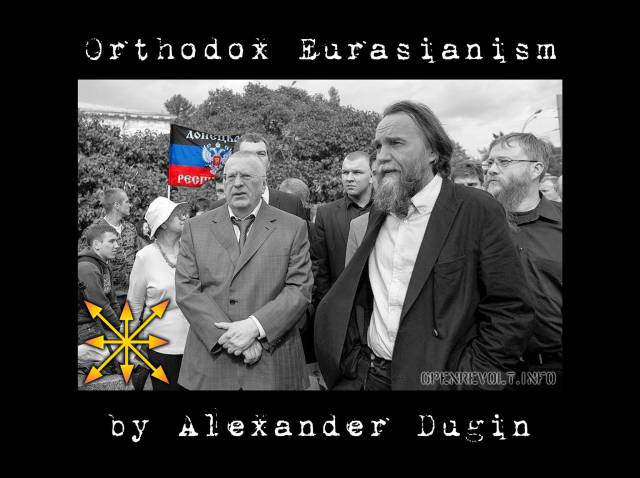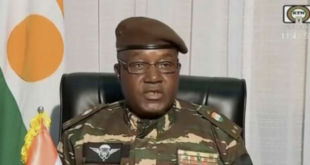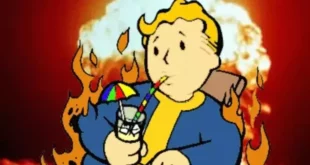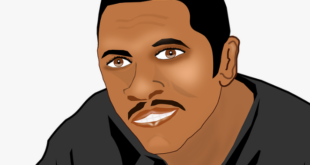Alexander Dugin
Open Revolt
September 15, 2014
Translated for Open Revolt by Venator
1 – The term “Orthodox Eurasianism” is increasingly used by the junta in Kiev to describe the worldview of the Republic of Novorossia. While it is clear that this element of language was designed in Washington, it is however, in my view, quite correct.
2 – Almost all historical Eurasists were Orthodox Russian patriots. However,unlike Slavophiles and Leontiev, they were skeptical about the possibility of uniting all Slavs because they felt that cultural, religious and historical differences between them were more important than their ethno-linguistic proximity. At the same time, they emphasized that Russian civilization had integrated into a unity of destiny a number of non-Slavic peoples (Turks, Caucasians, people of Siberia) which were in geographical contact us.
3 – As early as the 1990s, under our influence, Eurasianism integrated into its corpus geopolitics (thalassocracy against tellurocracy, Eurasia against the Atlantic world, Eurasians against Atlanticist) and traditionalism (Tradition against the modern and postmodern world).
4 – All of this is in fact the ideological foundation of the Republic of Novorossia. First, it is at the forefront of the Orthodox religious identity in a cultural sense (against Ukrainian nationalism and the Uniate Church and against liberal theory of human rights and protection of sexual minorities) . Secondly, there is an opposition in the geopolitical choice, Euromaïdan being purely Atlanticist. Thirdly, the Republic of Novorossia is following an anti-liberal and social orientation, and in favor of traditional values. Fourthly, the symbolic presence in the ranks of it’s army of Ossetians or Chechens volunteers, corresponds to the unity of destiny cited above.
5 – More interestingly, in the current acute civilizational confrontation causing tens of thousands of deaths, air strikes and artillery fire against the civilian population are ordered by the Atlanticist junta in Kiev in order to punish the Republic of Novorossia seen as a bastion of Orthodoxy and Eurasia opposing Atlanticism, liberalism and Nazism, while in the minds of the leaders of the Republic of Novorossia and its citizens the same pattern prevails: they are at the front line of a battle between Russia and the West, Orthodoxy and the anti-religious modernity, Eurasia and the Atlantic world.
Is there the same understanding of the situation In Russia? Yes, for the grassroot patriots, but not in the elite. A considerable part of it is liberal, Atlanticist and postmodernist. Its members do not think of themselves as citizens of a great nation, but as the inhabitants of a small country, and they are not a fifth column that would act in secret, but a sixth, openly integrated into the global network of Atlanticism, liberalism, capitalism and postmodernity. They no longer think as members of a people but only as members of this network.
6 – In Russia, Orthodox Eurasianism remains in a passive and implicit state, it does not become conscious because it does not face a direct existential and straightforward enemy. Russia is a huge country and the daily lives of Russians is filled with a myriad of technical details that do not allow most to have an overall view of the situation. Trying to raise awareness, even approximately, is as difficult as explaining a koan. But when, as in the Republic of Novorossia, citizens are faced with a will to destroy their culture, religion and ethnicity, it becomes urgent to establish their own identity. That is why othodoxe Eurasianism has grown from an implicit to explicit state. There, it is no longer a matter of words, but of war, it is a vital issue.
7 -Thus was born the dissonance between modern Russian elite and the Republic of Novorossia. There are more and more conflict between them, hence the delays and failures of concrete assistance from Russia to the Republic of Novorossia and the explanation of precedents like the failed action spin doctors (since fired ) in the Kremlin, who began to marginalize those who were conservative, patriotic, Orthodox or Eurasisans. Thus, the contradiction between the ideology of the elite of the Russian world and that of the majority of the inhabitants of Novorossia and Russia is becoming more and more apparent. The sixth column has particularly revealed itself in it’s hysterical hostility towards the volunteer army of the Republic of Novorossia, it can be clearly defined ideologically (ie by it’s cultural and geopolitical religious positions) as a rejection of Orthodox Eurasianism.
8 – Now, it is inevitable that the Orthodox Eurasianism becomes the ideological paradigm of the Republic of Novorossia. Orthodoxy is the spiritual core of identity, Eurasianism it’s geopolitical, cultural and civilizational marker. Since Novorossia, this ideology will only grow and widen the scope of it’s struggle. Accordingly, facing the Republic of Novorossia, Moscow will have to deal with the Orthodox eurasians of the Russian state. The volunteers of the Russian Federation fighting in the militia of the Republic of Novorossia, by confronting their true spiritual and geopolitical enemy, discovered that identity and they go back home with it. Now the words of the priests who officiate in Russian Orthodox churches, history and geopolitical books will be perceived differently: both as an existential issue that involves life, death and blood, and as a backbone. Thanks to those who will be engaged in the defense of the Republic of Novorossia and who experience this particular Eurasian Orthodox identity, the rest of the Russian population will learn more about its ideological identity. At the same time, the achievements of the Soviet Union will not be excluded but included in a broader context rid of orthodox Marxism, materialism and atheism. That is the Eurasian ideology: it mainly includes the legacy of orthodoxy of the Byzantine monarchy and Russian nationalism, not to mention the Russian interpretation of Soviet history as briefly expressed in National Bolshevism. Orthodox Eurasianism incorporates the theories of Ustrialov’s review “Change of direction” and integrates them in a general paradigm opposing Atlanticism, the West, liberalism and postmodernism. We can write that it is the “natural organic ideology” of the great Russian nation. Fighting every day, even in Russia, for the Republic of Novorossia, strengthens eurasian orthodox positions.
9 – This analysis explains why the sixth column in Russia is so alarmed and tries to discredit all patriotic political initiatives in favor of the Republic of Novorossia. If they fail to eradicate the new stream of Orthodox Eurasianism, it will increase its influence in Russian society and become a serious threat to the entire liberal and Atlanticist network of the Russian elite. This explains everything, including my recent exclusion from the university. We are dealing with symbolic acts that are of great importance: hitting Orthodox Eurasians is beneficial to the Liberal Atlanticists.
10 – Where is the place of Putin in this ideological pattern? He always preferred to be above the fray of liberals and conservatives, Atlanticist and Eurasists, agents of the enemy and patriots. This is his mysterious tactics. Usually Putin himself speaks ambiguously, so that his words can be interpreted either as Eurasian or as Atlanticist. Similarly, the support or opposition to Putin are not structured ideologically : his supporters and opponents are indiscriminately Eurasists, Orthodox, liberal and Atlanticist. However, the vast majority of Orthodox Eurasians are in favor of Putin and the vast majority of Atlanticist liberals are hostile to him. Putin is not fundamentally opposed to Orthodox Eurasianism as, alas, he has no objection to liberal Atlanticism. He does not reveal his own ideology. He makes evasive statements that are immediately interpreted in one way or another. Putin does not follow a straight line and it does not make sense to ask who he supports, Atlanticists or Eurasians. He is above the fray. He is now familiar in the role of the mysterious and unpredictable ruler, whose speeches are like contradictory koans, but when the time comes to act, he does what needs to be done and, in critical situations, it is always the right thing in terms of Orthodox Eurasianism.
Until recently, in the the elite, the Atlanticist liberals dominated the ideological and technological fields, and they had the media monopoly of the interpretation of the presidential speech. Now, that monopoly is in danger because of the events in Ukraine and the time has come for the Orthodox Eurasian interpretation.
 Daily Stormer The Most Censored Publication in History
Daily Stormer The Most Censored Publication in History



